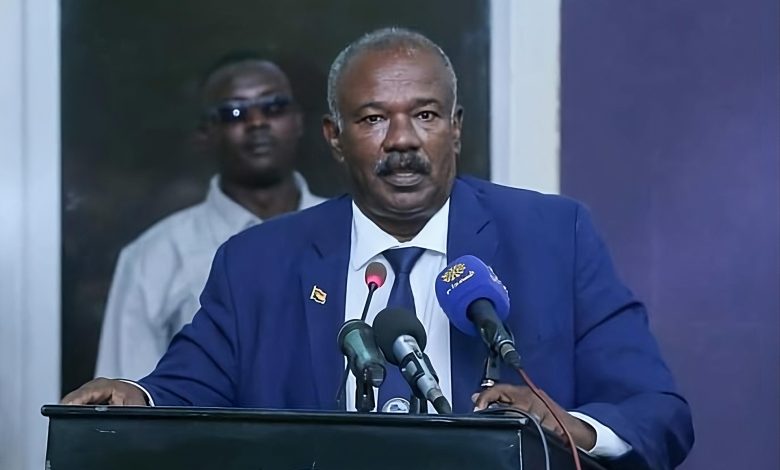Famine in Sudan: Numbers Dispute Predictions

Report by Rebab Abdullah
Foreign organizations have been warning of an impending famine in Sudan due to the ongoing war since April 2023. However, these warnings have been repeatedly denied by officials, including the Minister of Agriculture, Dr. Abubakr Al-Bushra, who firmly asserts with evidence that famine will not occur in Sudan. Likewise, the Minister of Finance, Dr. Jibril Ibrahim, has revealed that there is sufficient food stock in the country, dismissing the likelihood of famine.
Officials’ Remarks Met with Disapproval
Nonetheless, these statements have not sat well with many, particularly farmers in areas controlled by the Rapid Support Forces militia. Agricultural engineer Kamel Sari, a farmer from the northern section of the Gezira Project, voiced his objection to these official statements dismissing the famine. In a message posted in the “Liberation of Gezira” group on WhatsApp, Sari said, “I read some officials’ statements ensuring Sudan’s food security and dismissing any threat of famine.” He questioned why officials would deny the famine while Sudanese citizens are experiencing its harsh realities, with international reports indicating that 25 million people are at risk of famine. He added that Sudan’s agriculture is the only safeguard for the nation’s food security, and any claims otherwise are disconnected from the truth that farmers are living through.
Sari highlighted that the war has caused farming projects to halt, with farmers abandoning their lands, leaving them barren. He emphasized that signs of famine are already visible and, if the situation continues, will lead to catastrophe. He mentioned that only small areas in safe regions unaffected by the war have been cultivated, and their yield, if not stolen, is barely enough for local consumption. Due to the limited cultivation, he doubted that this would secure Sudan’s food supply.
Sari criticized officials, accusing them of prioritizing their job security over the truth, as their statements could cause more harm to the citizens through hunger and death. He confirmed that most agricultural projects in Sudan, including the Gezira Project, have been disrupted by the war, with only a small secure area remaining. He also expressed hope that others would step in to help plant during the winter season to compensate for the summer season’s losses and prevent the impending food crisis.
Food Security
On the other hand, Griek Kambal, Deputy President of the Sudanese Farmers’ Union – Rainfed Sector, insisted that the season is progressing well and that all crops planted have been 100% successful. He pointed to the large area planted in the Gedaref State, which he believes is enough to secure Sudan’s food needs. He denied any threats of famine, stating that early signs of production are visible.
Famine is Unlikely
In his statement to Al-Ahdath, Griek Kambal strongly affirmed that famine is impossible as long as a large area has been cultivated and rainfall has been adequate, which suggests a high yield. He noted the absence of pests and predicted that the price of sorghum would drop below 100,000 Sudanese pounds per sack by the end of September or early October when the new harvest arrives. He stressed that famine is impossible in Sudan as long as the rain continues and farmers are working the land. He called on those spreading famine fears to stop, assuring that Sudan can secure its food supply. He acknowledged that parts of the Gezira and Sennar states were excluded from the agricultural cycle due to the war, but said that God’s grace brought rain to other states, such as the Nile River State, where a large amount of crops—especially sorghum—were planted, which will cover the shortfall caused by the war.
An Exceptional Agricultural Season
Meanwhile, Hassan Zarouq, the spokesperson for the Agricultural Chamber in Gedaref State, described the current agricultural season as exceptional, given the challenging conditions the country is experiencing. He noted in his remarks to *Al-Ahdath* that this year’s season has been highly successful, contrary to usual expectations, and is the most successful since the 1970s.
Zarouq attributed the success to the farmers’ great efforts, as they initially funded themselves, and the official funding came late, benefiting only about 1,500 farmers across the state. He also pointed out that this year’s funding increased to 60 million Sudanese pounds, up from 40 million last year, though still insufficient given rising prices.
Cultivated Area Exceeds Expectations
Zarouq noted that ten million feddans were planted in Gedaref, surpassing the Federal Ministry of Agriculture’s expectations for this season. He added that this is one of the most successful seasons for cultivating sorghum, millet, and sesame. He noted that production in the northern region is particularly high, including around one million feddans of sesame and about 700,000 feddans of millet, with smaller amounts of peanuts, watermelon, and cotton.



